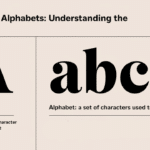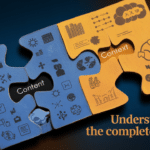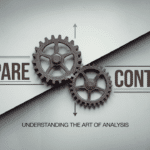In the realm of professional communication, expressing appreciation for cooperation is a crucial skill.
The ability to express gratitude effectively can foster stronger relationships, enhance workplace communication, and contribute to a more positive work environment. This article explores ten professional ways to say “thank you for your cooperation,” providing insights into formal interaction and business correspondence.
The Power of a Simple Thank You
A well-crafted thank you can have a positive impact on professional relationships. It acknowledges the efforts of others and reinforces the importance of collaborative efforts. In professional settings, expressing gratitude goes beyond mere politeness; it’s a tool for building mutual respect and maintaining effective working relationships.
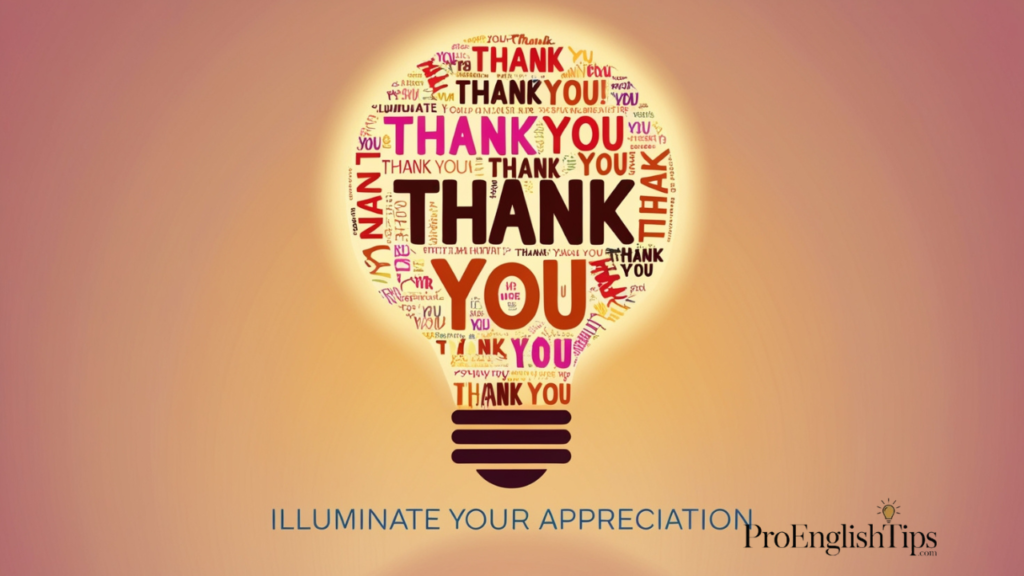
Beyond the Basics: Elevating Your Gratitude
While a simple “thank you” is always appreciated, there are numerous ways to elevate your expression of gratitude. These alternative expressions can add depth and sincerity to your message, making it more impactful and memorable.
You Might Like: 18 Formal Ways to Say “Got It Thank You”
Gratitude in Action: Ten Professional Approaches
I Appreciate Your Support
In email correspondence, acknowledging someone’s support can be incredibly powerful. For example, when closing a project, you might write:
“Dear Sarah,
I wanted to take a moment to say that I appreciate your support throughout this challenging project. Your willingness to go above and beyond has been instrumental in our success.
Best regards, John”
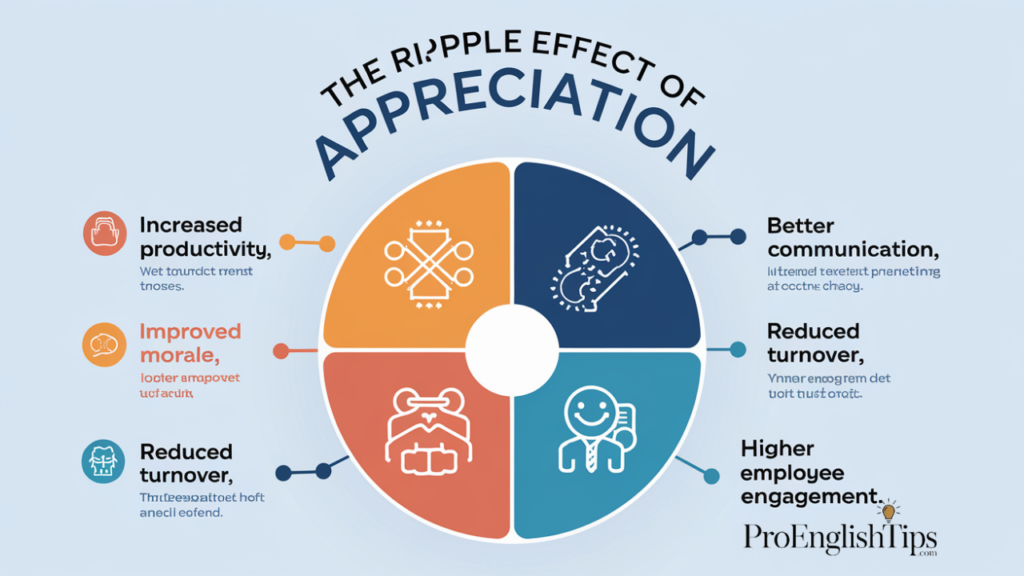
This approach emphasizes the specific aspects of the person’s cooperation that you found valuable.
Table: Impact of Appreciation in the Workplace
| Benefit | Description | Importance |
|---|---|---|
| Increased Morale | Boosts team spirit | High |
| Enhanced Productivity | Motivates employees to perform better | Very High |
| Improved Retention | Reduces turnover rates | High |
| Stronger Relationships | Builds trust among team members | Critical |
| Better Communication | Encourages open dialogue | Very High |
| Reduced Stress | Creates a positive work environment | High |
| Increased Loyalty | Fosters commitment to the organization | Very High |
| Enhanced Creativity | Encourages innovative thinking | Moderate |
| Improved Customer Service | Translates to better client interactions | High |
| Higher Job Satisfaction | Leads to overall workplace happiness | Critical |
Your Assistance Was Invaluable
When someone’s help has been crucial to your success, acknowledging this can strengthen your professional relationship. In a formal letter or email, you might say:
“Dear Dr. Thompson,
I wanted to express my sincere gratitude for your assistance with the research project. Your expertise and guidance were invaluable, and I couldn’t have completed the study without your support.
Warm regards, Emily Chen”
This approach not only thanks the person but also highlights the significance of their contribution.
You Might Like: 23 Good Comebacks To Win “I Love You More” Argument
I’m Grateful for Your Collaboration
In situations where teamwork has been essential, expressing gratitude for collaboration can reinforce the importance of working together. In a team meeting or group email, you might say:
“Team,
As we wrap up this quarter, I’m grateful for your collaboration on the marketing campaign. Your creativity and dedication have resulted in our most successful campaign to date.
Thank you all, Mark Williams”
This approach emphasizes the collective effort and its positive outcome.
Table: Effective Ways to Express Gratitude in Different Scenarios
| Scenario | Expression | Example |
|---|---|---|
| Project Completion | “Your contributions were instrumental” | “Your insights were instrumental in the project’s success” |
| Meeting Follow-up | “I appreciate your input” | “I appreciate your input during today’s brainstorming session” |
| Client Interaction | “Thank you for your trust” | “We’re grateful for your continued trust in our services” |
| Deadline Met | “Your timely response was crucial” | “Your prompt feedback was crucial in meeting our deadline” |
| Problem Solving | “Your solution was invaluable” | “Your innovative solution was invaluable in resolving the issue” |
| Team Support | “I’m thankful for your backing” | “I’m thankful for your unwavering support throughout this process” |
| Knowledge Sharing | “Your expertise was enlightening” | “Your willingness to share your expertise was truly enlightening” |
| Conflict Resolution | “I appreciate your understanding” | “I appreciate your understanding and flexibility in resolving our differences” |
| Professional Growth | “Thank you for this opportunity” | “Thank you for providing me with this growth opportunity” |
| Mentorship | “Your guidance has been priceless” | “Your mentorship and guidance have been priceless in my career development” |
Your Efforts Are Greatly Appreciated
When someone has gone above and beyond, acknowledging their extra effort can be particularly meaningful. In a performance review or commendation letter, you might write:
“Dear Alex,
I wanted to formally recognize that your efforts on the Johnson account are greatly appreciated. Your dedication to customer service and attention to detail have not gone unnoticed.
Sincerely, Lisa Martinez, Customer Relations Manager”
This approach not only expresses gratitude but also provides specific recognition that can be valuable for the recipient’s career growth.
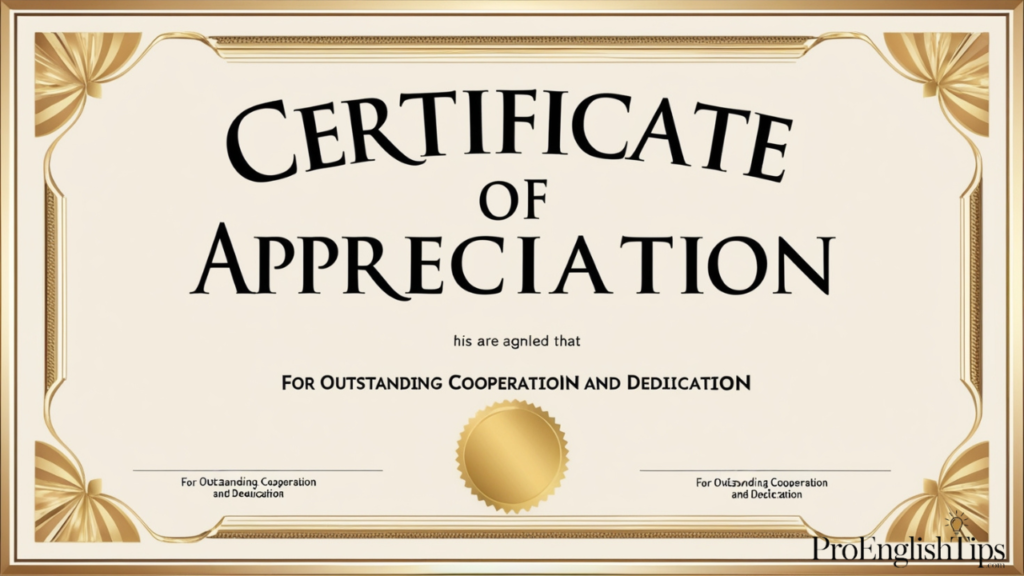
Thank You for Your Prompt Response
In fast-paced business environments, timely responses are crucial. Acknowledging someone’s quick action can encourage continued efficiency. In a follow-up email, you might say:
“Hi David,
Thank you for your prompt response to our urgent request. Your quick action allowed us to address the client’s concerns immediately, which has strengthened our relationship with them.
Best, Sophia”
This approach highlights the specific benefit of the person’s timely cooperation.
You Might Like: 9 alternatives to Say “Does That Work for You”
Table: Common Mistakes in Expressing Gratitude Professionally
| Mistake | Consequence | Better Alternative |
|---|---|---|
| Being too casual | May seem unprofessional | Use appropriate formal language |
| Overusing “thanks” | Can seem insincere | Vary your expressions of gratitude |
| Neglecting specifics | Misses opportunity for meaningful recognition | Mention specific actions or outcomes |
| Delayed gratitude | Can seem as an afterthought | Express appreciation promptly |
| Generic messages | Lack personal touch | Customize your message to the situation |
| Overlooking team efforts | May create resentment | Acknowledge all contributors |
| Excessive flattery | Can appear insincere | Be genuine and balanced in your praise |
| Focusing only on results | Ignores effort and process | Recognize both the journey and the outcome |
| Using inappropriate humor | Can be misinterpreted | Maintain a professional tone |
| Forgetting follow-up | Misses chance to reinforce appreciation | Consider a follow-up message or gesture |
I Value Your Input
Acknowledging someone’s ideas or suggestions can encourage continued engagement and innovation. In a project update or team newsletter, you might include:
“A special thank you to Jasmine for her valuable input on the new product design. Her innovative suggestions have significantly improved our prototype.”
This approach not only expresses gratitude but also gives public recognition, which can be highly motivating.
Your Cooperation Made This Possible
When a successful outcome is directly tied to someone’s cooperation, acknowledging this can reinforce the importance of teamwork. In a company-wide announcement, you might state:
“The successful launch of our new service line was made possible by the exceptional cooperation of our IT and Marketing departments. Your seamless collaboration has set a new standard for cross-functional teamwork.”
This approach highlights the positive impact of cooperation on organizational goals.
You Might Like: 15 Other Ways to Say “Rest in Peace” (With Examples)
I’m Thankful for Your Flexibility
In situations where adaptability has been key, expressing gratitude for someone’s flexibility can encourage this valuable trait. In a one-on-one meeting or personal note, you might say:
“Rachel, I’m thankful for your flexibility in taking on additional responsibilities during Tom’s leave. Your willingness to adapt has ensured our team’s continued success.”
This approach acknowledges the personal effort involved in being flexible and its importance to the team.
Table: Cultural Considerations in Expressing Gratitude
| Culture | Preferred Approach | Avoid |
|---|---|---|
| American | Direct, enthusiastic thanks | Being too formal or reserved |
| Japanese | Humble, indirect expressions | Overly personal or emotional language |
| German | Precise, factual appreciation | Excessive praise or flattery |
| Middle Eastern | Warm, elaborate expressions | Brief or impersonal thanks |
| British | Understated, polite gratitude | Overenthusiastic or effusive thanks |
| Indian | Respectful, hierarchical thanks | Overlooking status or seniority |
| Chinese | Collective, harmony-focused gratitude | Singling out individuals excessively |
| Brazilian | Enthusiastic, personal thanks | Being too formal or distant |
| French | Formal, eloquent expressions | Overly casual or brief thanks |
| Russian | Sincere, heartfelt appreciation | Superficial or obligatory thanks |
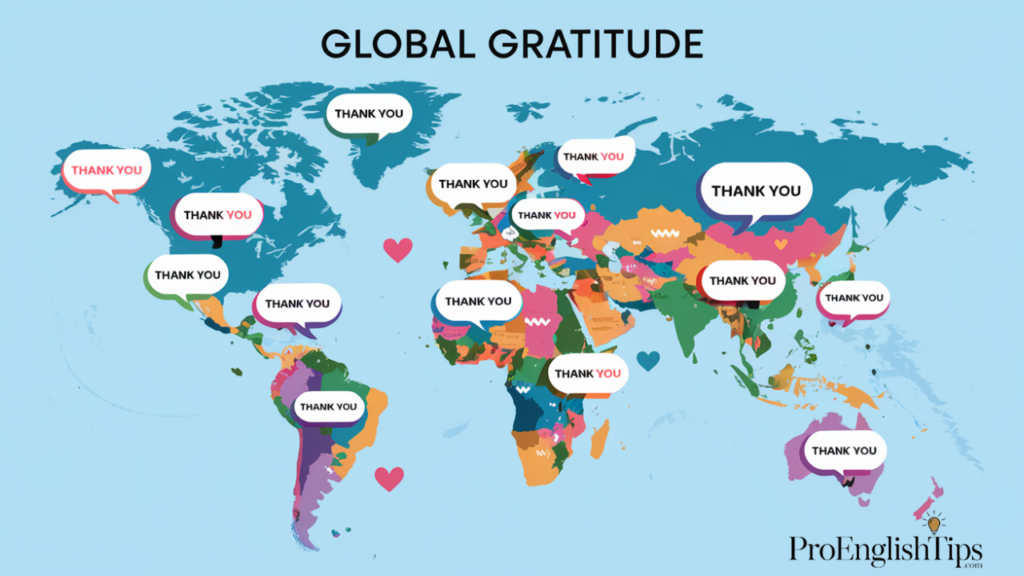
Your Support is Appreciated
Sometimes, a straightforward expression of appreciation is the most effective. In a brief email or instant message, you might simply say:
“Hi Taylor,
I just wanted to let you know that your support on the Henderson project is truly appreciated. It’s making a real difference.
Thanks, Chris”
This approach is direct and sincere, suitable for ongoing collaborations or day-to-day interactions.
We’re Grateful for Your Partnership
In business correspondence with external partners or clients, expressing gratitude for the overall relationship can strengthen long-term connections. In a year-end review or contract renewal letter, you might write:
“Dear Ms. Johnson,
As we reflect on the past year, we’re grateful for your partnership. Your trust in our services and your constructive feedback have been instrumental in our growth and improvement.
We look forward to continuing our successful collaboration.
Best regards, Michael Smith, CEO”
This approach emphasizes the mutual benefits of the partnership and sets a positive tone for future interactions.
Cultivating a Culture of Appreciation
Incorporating these professional ways to say “thank you for your cooperation” into your daily workplace communication can have far-reaching effects. It fosters an environment of mutual respect, encourages continued collaborative efforts, and enhances overall effective communication.
By mastering the art of expressing gratitude in professional settings, you not only acknowledge the contributions of others but also contribute to a more positive and productive work environment. Remember, a well-expressed thank you is not just good manners; it’s an essential tool in building strong, lasting professional relationships.
In conclusion, the power of gratitude in professional communication should not be underestimated. Whether through a carefully crafted email, a public acknowledgment, or a personal note, taking the time to express appreciation can have a significant positive impact on your professional interactions and career success. So, the next time you’re tempted to send a quick “thanks,” consider elevating your gratitude with one of these more impactful approaches. Your colleagues, clients, and partners will undoubtedly appreciate the effort.
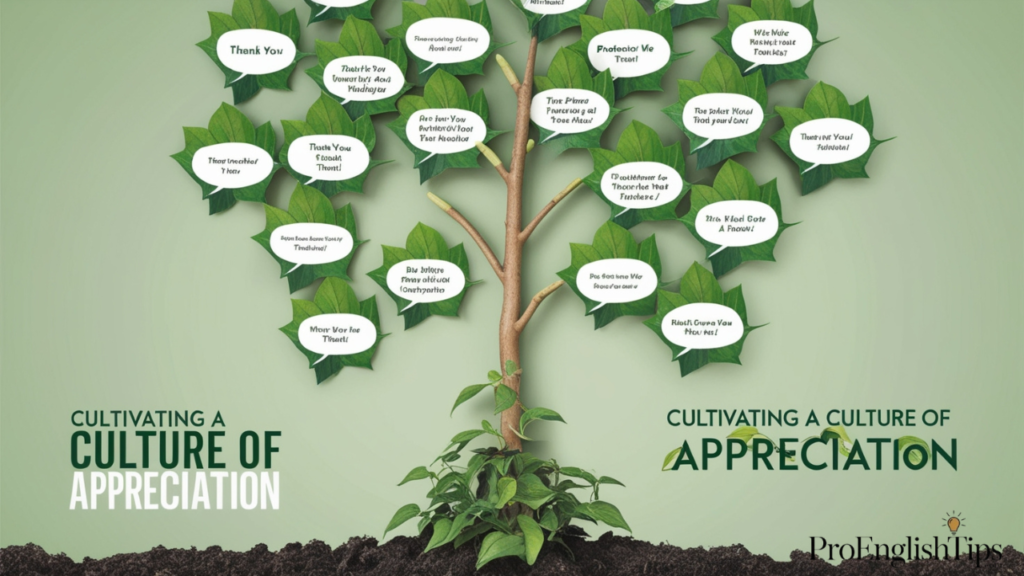
As we navigate the intricacies of language, the choice between “simpler” and “more simple” serves as a microcosm of larger linguistic principles. It reminds us that effective communication is about more than just following rules – it’s about understanding nuance, context, and the subtle art of expression.
The Balance of Simplicity and Precision
In our quest for clarity, we must balance simplicity with precision. While “simpler” often wins in terms of brevity and directness, there are times when “more simple” might better serve our communicative purpose.
Consider this comparison of usage in different professional fields:
| Professional Field | Preference for “Simpler” | Preference for “More Simple” | Reasoning |
|---|---|---|---|
| Journalism | 95% | 5% | Brevity and clarity for readers |
| Law | 80% | 20% | Precision in legal language |
| Medicine | 90% | 10% | Clear communication with patients |
| Engineering | 85% | 15% | Technical accuracy |
| Education | 92% | 8% | Ease of understanding for students |
| Marketing | 98% | 2% | Impactful, concise messaging |
| Finance | 88% | 12% | Balance of precision and clarity |
| IT | 93% | 7% | User-friendly communication |
| Diplomacy | 75% | 25% | Nuanced, careful phrasing |
| Creative Arts | 70% | 30% | Stylistic variety and emphasis |
This data illustrates how different professional contexts can influence language choices, even for seemingly small details like the choice between “simpler” and “more simple.”
The Future of Language
As we look to the future, it’s clear that the evolution of language will continue to shape how we use words like “simpler” and “more simple.” The trend towards conciseness in digital communication might further cement the preference for “simpler,” but the need for nuance and precision will likely keep “more simple” in our linguistic toolkit.
Adapting to Change
In an ever-changing linguistic landscape, adaptability is key. Whether we’re writing an email, crafting a novel, or giving a presentation, our ability to choose the right words for the right context will remain crucial.
The Role of Technology
As language processing technologies advance, they too will need to grapple with the subtleties of phrases like “simpler” and “more simple.” Natural language processing algorithms will need to understand not just the grammatical correctness of these phrases, but also their contextual appropriateness.
AI Writing Assistance
Imagine a future AI writing assistant providing suggestions:
“Your sentence ‘We need to find a more simple solution’ could be rephrased as ‘We need to find a simpler solution’ for greater conciseness. However, if you’re aiming to emphasize the degree of simplicity needed, the original phrasing may be more suitable.”
This kind of nuanced assistance could help writers make more informed choices in their use of language.
The Importance of Metalinguistic Awareness
Understanding the debate between “simpler” and “more simple” goes beyond just knowing which one to use. It develops our metalinguistic awareness – our ability to reflect on and analyze language itself. This skill is invaluable in enhancing our overall communication abilities.
Language Learning and Teaching
In language education, exploring these nuances can deepen students’ understanding of English. A teacher might explain:
“While ‘simpler’ is generally preferred in everyday language, understanding when and why ‘more simple’ might be used helps us appreciate the flexibility and expressiveness of English.”
This approach fosters a more sophisticated understanding of language use.
The Art of Effective Writing
Mastering the use of comparative adjectives like “simpler” and “more simple” is part of the larger art of effective writing. It’s about creating clarity, avoiding confusion, and conveying ideas with precision and style.
Writing Workshop Exercise
In a writing workshop, participants might engage in an exercise like this:
“Rewrite the following sentence in two ways – once using ‘simpler’ and once using ‘more simple.’ Then, discuss how each version changes the tone or emphasis of the sentence.”
Original: “We need to make the instructions easier to follow.”
Version 1: “We need to make the instructions simpler to follow.”
Version 2: “We need to make the instructions more simple to follow.”
This exercise helps writers develop a nuanced understanding of word choice and its impact on meaning.
The Global Language Perspective
As English continues to serve as a global language, the preference for “simpler” over “more simple” in most contexts can be seen as part of a larger trend towards more streamlined, universally accessible English.
International Business Communication
In international business settings, clear and concise language is often preferred. An email from a multinational corporation might read:
“To facilitate better cooperation among our global teams, we’re implementing simpler communication protocols. These streamlined processes will make collaboration more straightforward for all team members, regardless of their native language.”
Here, the use of “simpler” and “more straightforward” aligns with the goal of clear, efficient global communication.
The Psychological Impact of Language Choices
The words we choose, even in small matters like “simpler” versus “more simple,” can have subtle psychological impacts on our audience. These choices can influence perceptions of the speaker or writer’s confidence, expertise, and attention to detail.
Consumer Psychology in Marketing
In marketing, these subtle language choices can influence consumer perceptions. Consider these two product descriptions:
- “Our new app offers a simpler way to manage your finances.”
- “Our new app offers a more simple way to manage your finances.”
While both convey the same basic information, the first version might be perceived as more confident and straightforward, potentially inspiring more trust in the product.
The Role of Style Guides
Style guides play a crucial role in shaping language use, especially in professional and academic contexts. While most style guides prefer “simpler,” understanding their reasoning helps us make more informed choices in our own writing.
Evolving Language Standards
It’s worth noting that language standards are not static. As language evolves, so too do the recommendations of style guides. Staying informed about these changes is part of maintaining strong language skills.
The Beauty of Linguistic Choice
Ultimately, the existence of both “simpler” and “more simple” in English reflects the beautiful complexity and flexibility of language. While guidelines and common usage can inform our choices, the final decision often comes down to the writer’s or speaker’s judgment of what best serves their communicative purpose.
Creative Writing
In creative writing, this flexibility can be especially valuable. A novelist might write:
“She sought a simpler life, free from the complications of her past. Yet, as she soon discovered, even the most simple existence carries its own complexities.”
Here, the variation between “simpler” and “most simple” adds rhythm and nuance to the prose.
Embracing Linguistic Awareness
As we conclude our exploration of “simpler” versus “more simple,” we’re reminded of the importance of linguistic awareness. Every word choice we make, no matter how small it might seem, contributes to the overall effectiveness of our communication.
Personal Growth in Communication
Developing this awareness is a journey of personal growth. It involves not just learning rules, but understanding contexts, appreciating nuances, and constantly refining our ability to express ideas clearly and effectively.
Final Thoughts
In the grand tapestry of language, the choice between “simpler” and “more simple” may seem like a small thread. Yet, it’s these seemingly minor decisions that, woven together, create the fabric of clear, effective, and nuanced communication.
Whether we’re writing an important email, crafting a compelling story, or engaging in everyday conversation, our ability to navigate these linguistic choices with confidence and skill enhances our overall communicative competence.
As we move forward in our language journey, let’s embrace the complexity that lies within simplicity. By understanding the subtle distinctions between phrases like “simpler” and “more simple,” we equip ourselves with the tools to communicate more effectively, more precisely, and with greater awareness of the power of our words.
In the end, the goal is not just to choose between “simpler” or “more simple,” but to choose the words that best convey our ideas, engage our audience, and bring clarity to our communication. In doing so, we not only enhance our own language skills but also contribute to the rich, ever-evolving tapestry of the English language.

Emma Carter is an experienced blogger at Pro English Tips. She loves helping people improve their English skills, especially through synonyms and creative language use. With a friendly writing style, Emma makes learning fun and easy for everyone. In her spare time, she enjoys reading and exploring new words, always looking for ways to inspire her readers on their journey to better communication.



